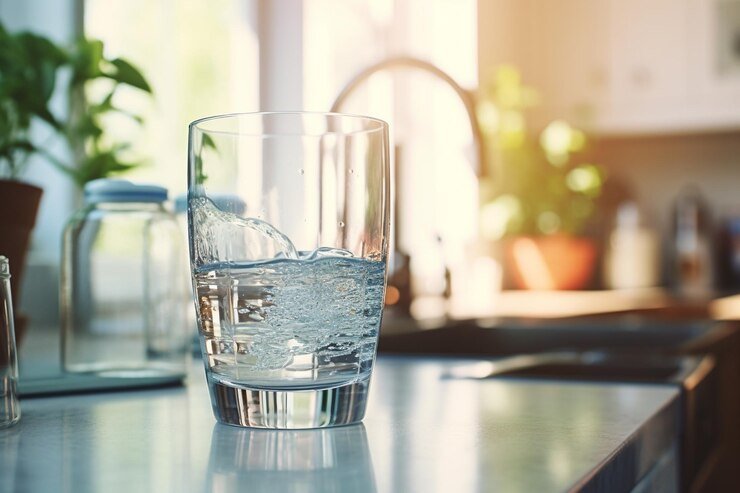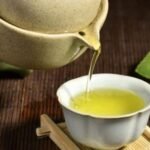Water is essential for life. It’s a resource we use daily for drinking, cooking, bathing, and cleaning. Given its integral role, ensuring the purity of our residential water supply is paramount. This article aims to inform you about residential water purity, the factors affecting it, and how you can ensure that the water in your home is safe and clean.
Understanding Water Purity
Water purity refers to the absence of contaminants in your water supply. Contaminants can range from physical particles like sediment to chemical pollutants such as pesticides, heavy metals, and industrial chemicals. Microbiological contaminants, including bacteria, viruses, and parasites, also pose significant health risks.
The purity of your water is influenced by various factors, including the source of the water, the infrastructure used to deliver it, and any treatment processes it undergoes. For instance, water from a well may have different impurities compared to water sourced from a river or lake. Similarly, the age and condition of your plumbing system can impact water quality, as old pipes may leach metals like lead into your water.
Common Contaminants and Their Effects
Several common contaminants can be found in residential water supplies. Understanding these contaminants and their potential effects on health is crucial:
- Chlorine and Chloramines: Used to disinfect water, these chemicals can react with organic matter to form harmful by-products. While generally safe at low levels, prolonged exposure can cause skin irritation and other health issues.
- Lead: Often leached from old pipes, lead is a potent neurotoxin, particularly dangerous for children. It can cause developmental delays, learning difficulties, and other severe health problems.
- Pesticides and Herbicides: Runoff from agricultural areas can introduce these chemicals into your water supply. Long-term exposure has been linked to various cancers and endocrine disorders.
- Microorganisms: Bacteria, viruses, and parasites can cause gastrointestinal illnesses, ranging from mild stomach upset to severe conditions like cryptosporidiosis.
- Nitrates: Commonly found in agricultural runoff, nitrates can interfere with the blood’s ability to carry oxygen, posing a significant risk to infants and pregnant women.
Ensuring Water Purity in Your Home
Given the potential risks associated with water contaminants, it’s essential to take proactive steps to ensure the purity of your residential water supply. Here are some effective measures:
- Water Testing: Regularly test your water to identify any contaminants present. Home testing kits are available, but for a comprehensive analysis, consider hiring a professional service.
- Water Filtration Systems: Installing a water filtration system can significantly improve water quality. Options range from simple pitcher filters to whole-house systems. If you live in Melbourne, researching the best water filters Melbourne can offer will help you find a system tailored to your needs.
- Maintenance of Plumbing: Regular maintenance of your plumbing system can prevent contamination. Replace old pipes, fix leaks promptly, and consider using corrosion-resistant materials.
- Water Treatment Devices: Devices like water softeners, UV purifiers, and reverse osmosis systems can remove specific contaminants. Choose a treatment method based on the contaminants identified in your water test.
Choosing the Right Water Filter
Selecting the right water filter for your home depends on various factors, including the types of contaminants present, your budget, and your specific needs. Here are some popular types of water filters and their benefits:
- Activated Carbon Filters: Effective at removing chlorine, sediment, volatile organic compounds (VOCs), and unpleasant odors and tastes. They are commonly used in pitchers and faucet-mounted systems.
- Reverse Osmosis Systems: These systems use a semi-permeable membrane to remove a wide range of contaminants, including nitrates, heavy metals, and bacteria. They are highly effective but can be more expensive and waste some water during the filtration process.
- UV Purifiers: Using ultraviolet light, these purifiers kill bacteria and viruses, making them ideal for addressing microbiological contaminants. They do not, however, remove chemical contaminants.
- Distillation Systems: These systems boil water to create steam, which is then condensed back into liquid, leaving most contaminants behind. Distillation effectively removes a wide range of contaminants, including minerals, metals, and many chemicals.
DIY Tips for Improving Water Quality
In addition to installing a water filtration system, there are several simple steps you can take to improve water quality at home:
- Regular Cleaning: Clean faucets, showerheads, and other fixtures regularly to prevent the buildup of bacteria and mold.
- Flush Taps: If your water has been sitting in the pipes for several hours, flush your taps by running the water for a few minutes before using it for drinking or cooking.
- Use Cold Water: For cooking and drinking, always use cold water from the tap. Hot water can dissolve contaminants more quickly from your plumbing system.
- Store Water Safely: Store filtered water in clean, covered containers in the refrigerator to prevent contamination.
Read Also: Why Is My HVAC Leaking Water?
The Importance of Staying Informed
Staying informed about water quality issues in your area is crucial. Local water suppliers are required to provide annual water quality reports, which detail the contaminants found in the water supply and the steps taken to address them. Reviewing these reports can help you understand the specific challenges in your area and take appropriate action.
Additionally, staying updated on water quality news and developments can help you make informed decisions about your water supply. Advances in water filtration technology and changes in regulations can impact the effectiveness of your water treatment strategies.
Ensuring the purity of your residential water supply is essential for maintaining your health and well-being. By understanding the common contaminants, regularly testing your water, and choosing the right filtration system, you can significantly reduce the risk of exposure to harmful substances. Remember to stay informed about water quality issues in your area and take proactive steps to protect your water supply. With the right knowledge and tools, you can enjoy clean, safe water in your home every day.














